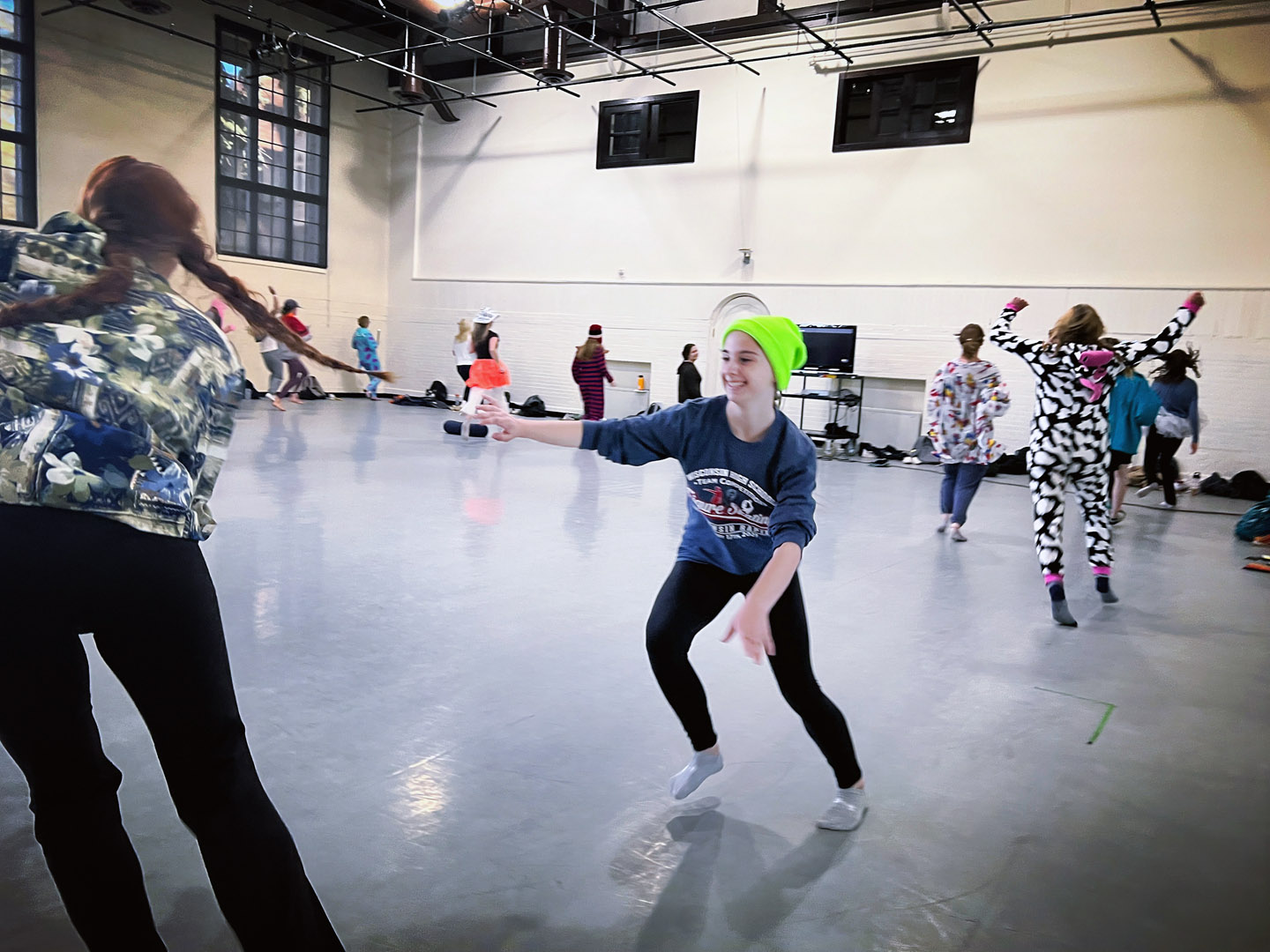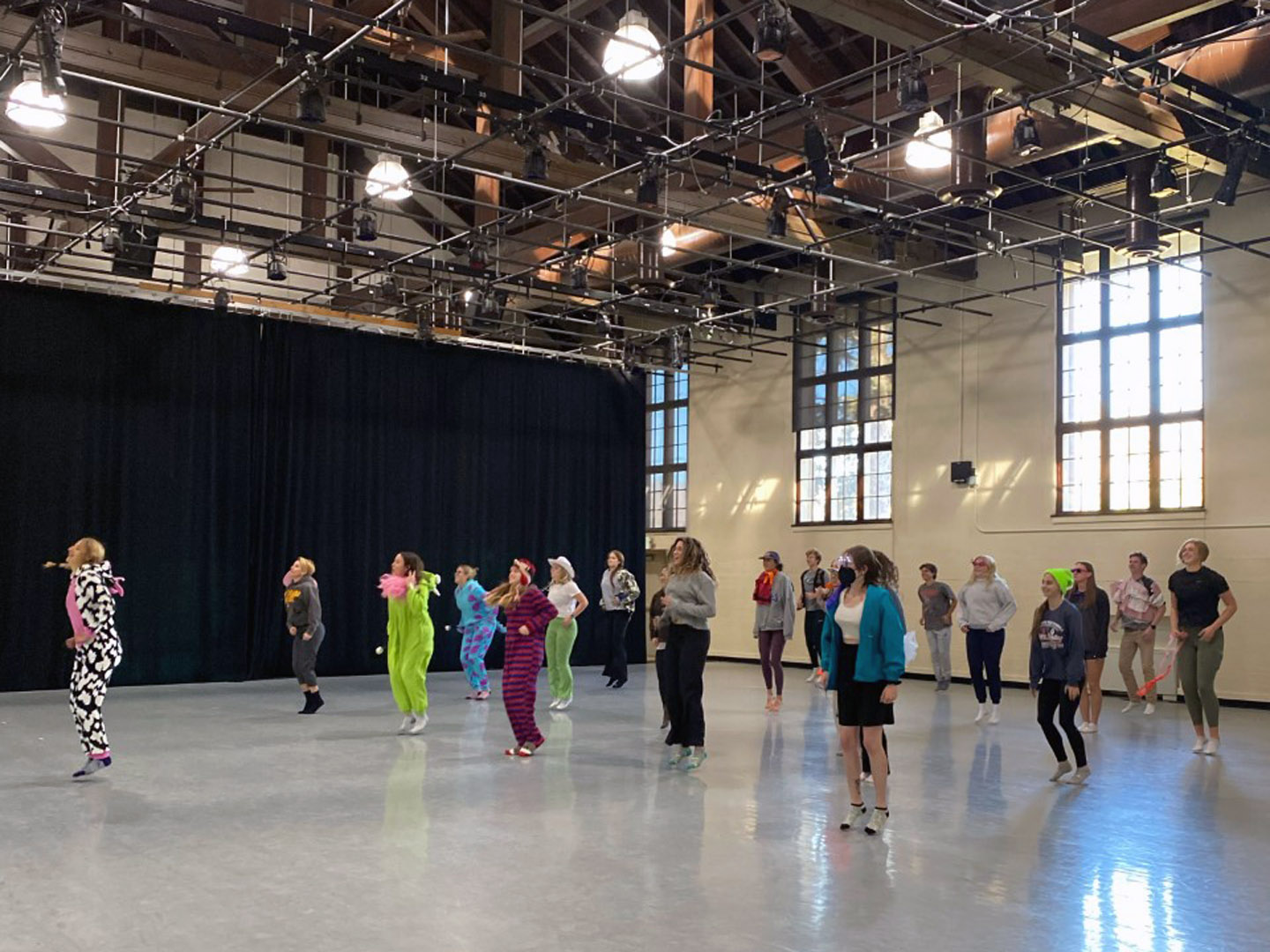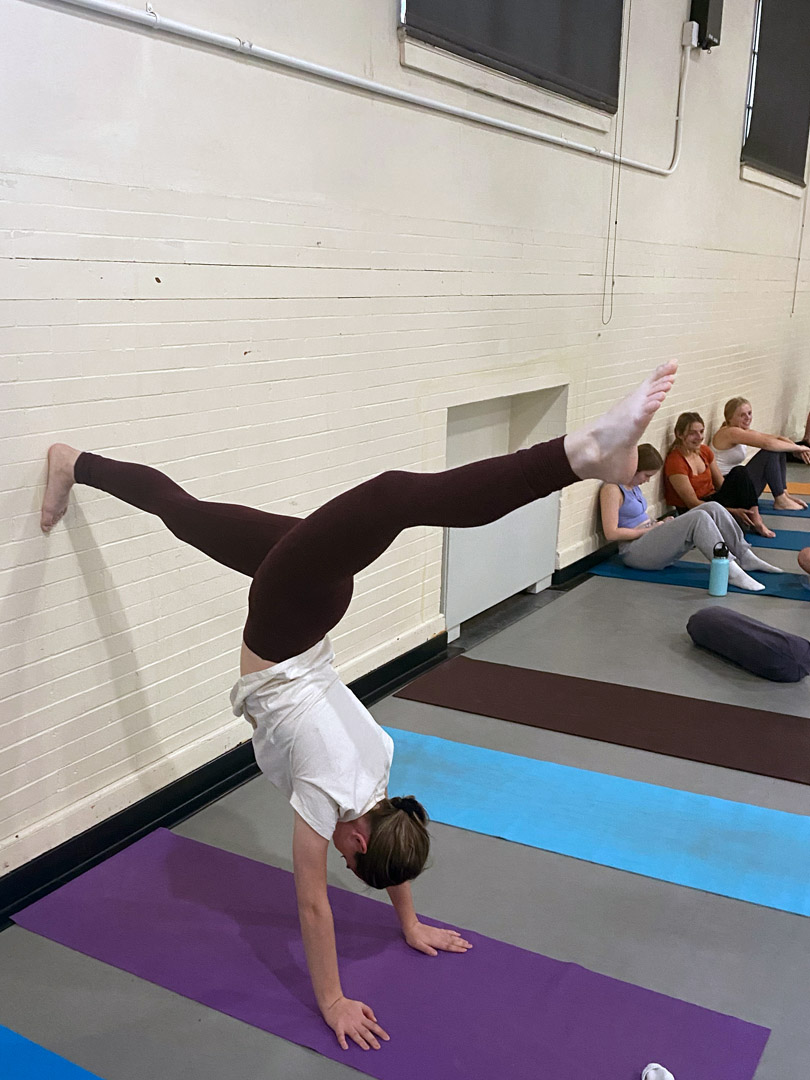Students incorporated self-care methods, learned about the body, and worked on movement and dance exercises during a Body in Motion Block 2 dance class.
“The class starts with the premise that the body can be a source of knowledge. Through listening, touching, and observing one's own body and working collaboratively with their peers, the students practice experiential learning on a daily basis. We move every day. We rest, we run, we play, we dance, we explore, we play more, we reflect, and we discuss and process and journal. Together,” says Patrizia Herminjard ’96, lecturer in dance in the Theatre and Dance Department.
There were 26 students enrolled in the class, which is not unusual, as Herminjard’s classes usually attract a large number of students, says Shaylan Quinn, the department’s academic administrative assistant.
“I chose Body in Motion because I heard rave reviews about the course, as well as the professor. I was also really drawn to the self-care and mindfulness aspect of the class, as well as the notion that taking care of and understanding your body can be a form of homework,” says Eliza Broan ’25.
Broan’s favorite part of the class was the self-care homework that they were assigned.
“It was a necessary addition to my life to look at my day from an intentional viewpoint. So much of college for me has been scheduled and repetitive, which is not necessarily a bad thing, but this block I was able to take a step back and see what I was doing in my days that was contributing to or detracting from my well-being,” says Broan.
Another important lesson Broan learned was how to notice minor changes and feelings in her body, which enhanced her understanding of how her brain and body communicate during and through movement.
Some questions members of the class asked themselves were how to gain knowledge from themselves and each other through listening, what listening is, how they can listen without expectation and judgement, and how they can remain open to change, says Herminjard, who graduated from Colorado College with a degree in philosophy.
Many students in the course appreciated the sense of community that their class created.
“Patrizia has fostered a sense of community and trust that has allowed my class to engage fully in all sorts of games in order to move our bodies or trust each other,” says Greer Harnden ’23.
“I've learned how to pay attention to my body, and that has led to me carrying myself in ways that feel better for me. I've also learned to prioritize self-love and taking care of myself,” says Harnden.
A typical day began with students gathering in a circle, where they would discuss class assignments or field trips, and then stretch and complete other warm up exercises, to get ready for whatever kind of movement they would do that day. Exercises ranged from partner contact improvisation to individualized experimentation with the Feldenkrais Method, says Broan.
The Feldenkrais Method requires students to slow down and pay attention to their small movements, says Harnden.
Broan and Harnden both agreed that the class would feel different if it wasn’t taught on the Block Plan.
“Part of the great thing about this class is that you are, for lack of a better word, forced into a complete immersion into self-care. This allows you to understand your body and mind in ways that I personally haven't realized before,” says Broan. “Being in class for three hours, moving, practicing mindfulness, and experiencing new ways of connecting our bodies and minds is a really special thing. When we leave at noon and come home not stressed out by any other class and focusing honestly and diligently on how to incorporate self-care and bettered movement practices into our daily lives is something I never knew I needed, but am so happy I was able to experience.”
“The Block Plan has allowed me to fully immerse myself in this class. If we were on a semester system, I wouldn't be able to fully be present in the way that this class requires me to, because I would be focusing on so many different things,” says Harnden, an education major. “For example, during the first week, our homework was to focus on self-care, and do something that is self-care for us every single day. If I was enrolled in three or four other classes, I wouldn't have been able to engross myself in that self-care process, and I wouldn't have gotten as much out of it.”
At first, Grace Witulski ’25 struggled to understand the purpose of the self-care assignment, but after the first week, it became clear.
“The deeper purpose of this homework was to help us internalize how the craziness of day-to-day life, especially in college, can make it difficult for us as students to include moments of self-care into our daily routines. The assignment showed us how important implementing self-care can be, and how it can genuinely have a positive effect on our overall mental health,” says Witulski.
Along with self-care homework, students were given creative and visual assignments, including a “body map,” where students completed a life-sized drawing of themselves that incorporated different elements of their identities and history with movement in either abstract or realistic ways.
One notable class exercise for Harnden was when the students were instructed to pretend a classmate was clay and then mold them across the room.
Witulski agreed that the class would have been “vastly different” had it not taken place on the Block Plan. “A huge part of the class was discussing self-care and how to manage the craziness of life with moments of ‘self-care,’ which varies between each student's personal definition. Because this was our only course, we were able to really disengage from common stressors like classwork, and able to more deeply focus on what self-care was,” says Witulski.
Witulski’s favorite part of the course was the fieldtrips they took, particularly when they went to a live performance of Bandaloop Dance Company, an aerial dance group, at the University of Denver, where the group danced on the sides of buildings.
Almost exactly 14 years ago, Bandaloop performed on campus at Colorado College’s inaugural performance of the Cornerstone Arts Center.
Herminjard says she hopes her students leave the class knowing that their bodies are a rich source of knowledge and that caring for and listening to their bodies is vital to their mental and physical well-being, she says.
Herminjard co-chaired Dance Workshop while she was a student, and then directed the CC Dance Festival from 2007 through 2013. She danced professionally in New York and has performed and taught in Taiwan, China, Bali, and Switzerland.
The class, which took place in Cossitt Hall, satisfied the creative process all-college requirement.








